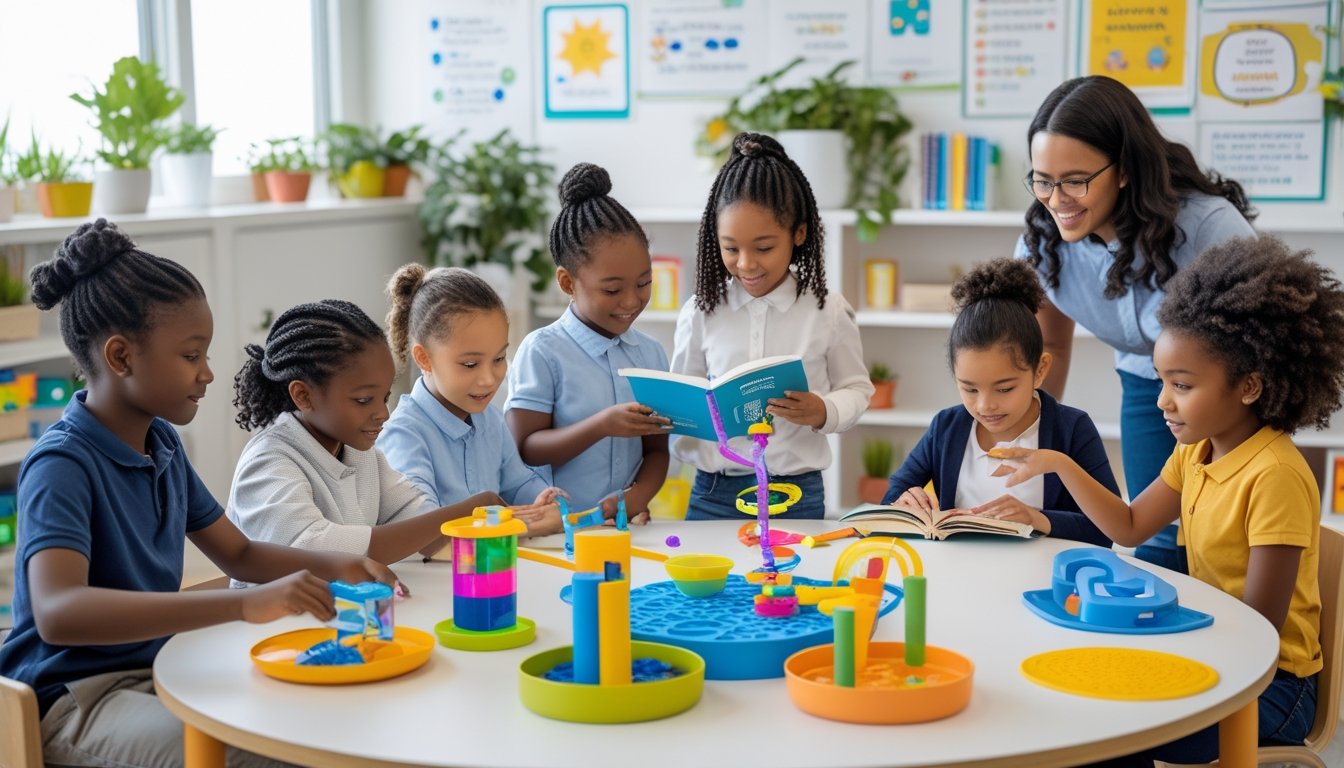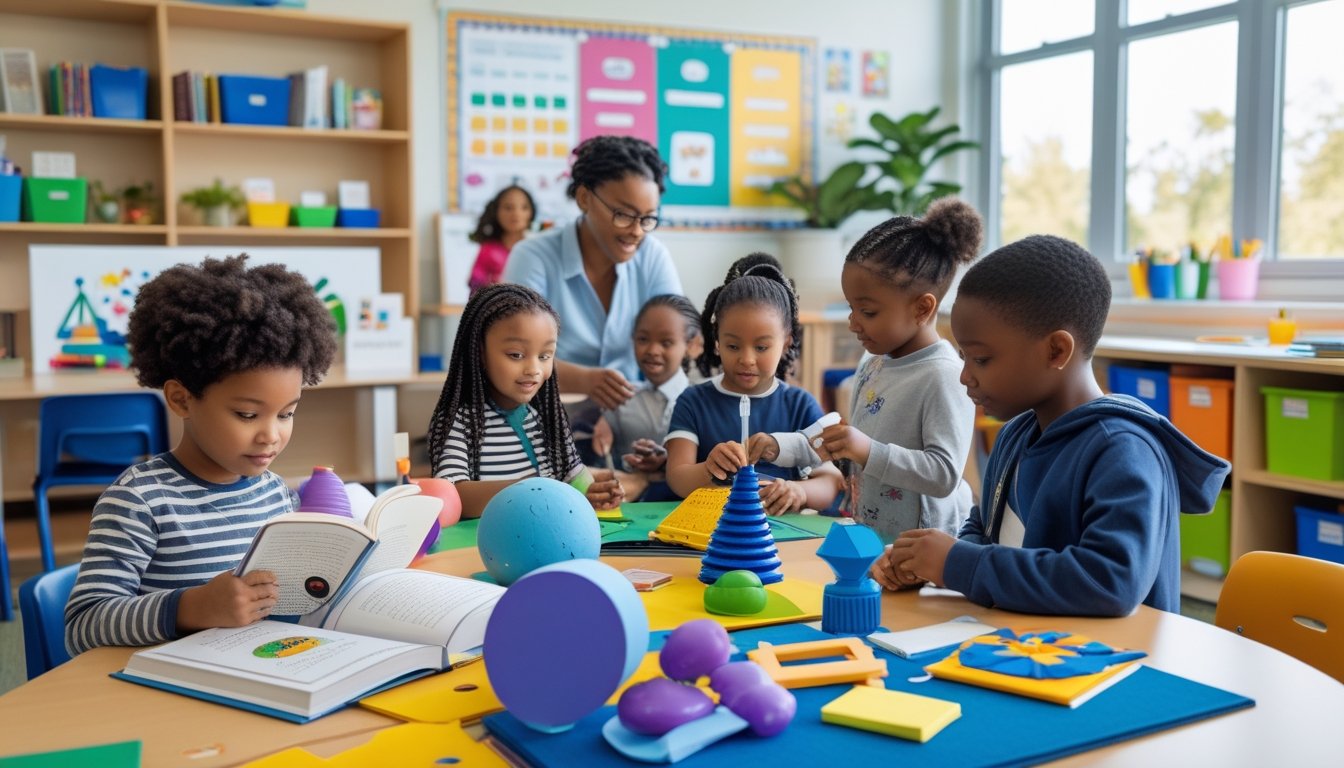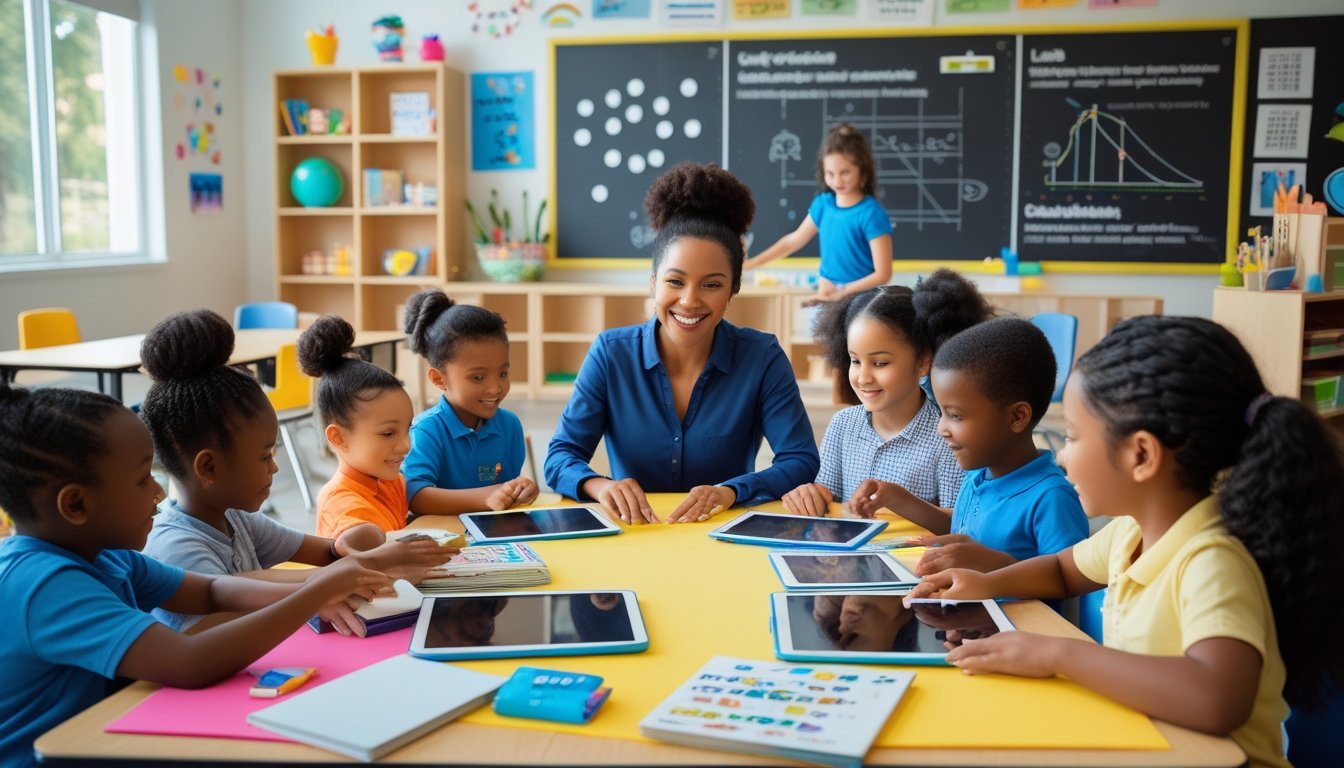Late updated: 01 Sep 2025 11:09
Written by:
Exploring Different Educational Philosophies for Children: A Comprehensive Overview
The journey of exploring educational philosophies for children is a fascinating voyage through a landscape filled with diverse ideas and methods. These philosophies range from Montessori’s emphasis on independence to the structured approach of traditional education. Understanding the core philosophies of early childhood education helps us provide the best learning environment tailored to our children's development.

As we dive deeper, we discover the nuances and unique benefits each philosophy offers. Some focus on fostering a child's natural instincts and creativity, while others aim for a more measured and systematic approach to learning. Our curiosity fuels this journey, as we seek to align our educational approaches with the evolving needs of our children.
Key Takeaways
- Educational philosophies greatly influence child development.
- Diverse methods cater to different learning styles.
- Understanding these philosophies aids in informed choices.
Core Educational Philosophies for Children
When it comes to shaping children's learning experiences, certain educational philosophies stand out. These systems offer distinct methods aimed at nurturing a child's natural curiosity, creativity, and love for learning. We explore three prominent educational approaches that inspire individualised learning and holistic development.
Montessori Education: Independence and Hands-On Learning
Montessori education encourages independence through hands-on activities. It emphasises individualised learning paths, allowing children to investigate topics at their own pace, leading to active learning and critical thinking. Mixed-age classrooms foster peer teaching and collaboration.
In a Montessori classroom, the environment is designed to facilitate experiential learning using methods that motivate children to explore materials freely. This system values open-ended play and enables learners to engage deeply with concepts through physical interaction. The Montessori method prioritises a child's holistic development by nurturing emotional, social, and academic growth.
Waldorf Education: Imagination and Holistic Development
Waldorf education prioritises imagination and artistic expression. It's rooted in the belief that education should address multiple facets of a child’s growth, including emotional, social, and spiritual development. Arts integration plays a central role, supporting creative expression through activities like painting, music, and drama.
This philosophy promotes imaginative play as a tool for developing problem-solving and critical thinking skills. Waldorf environments encourage communication and empathy in a nurturing atmosphere that respects each child's unique journey. By focusing on holistic development, Waldorf education creates a balanced approach that spans academics, crafts, and moral education.
Reggio Emilia Approach: Collaboration and Creativity
The Reggio Emilia approach champions collaboration and community within learning environments. This philosophy sees children as active learners, filled with potential and endowed with rights. It emphasises project-based learning that engages children in creative and critical thinking practices.
Reggio Emilia promotes dynamic exchange between educators, children, and families. This approach values the learning environment as the “third teacher,” offering materials and resources that inspire self-expression. Collaborative experiences in Reggio classrooms cultivate communication, laying the foundation for future academic and social success. Encouraging creativity and community fosters a sense of belonging and shared responsibility among students.
Emerging Themes in Educational Approaches

Emerging educational approaches focus on encouraging play as a learning tool, nurturing curiosity through inquiry, and addressing children's social-emotional and physical development.
Learning Through Play and Exploration
Play is a vital component of educational development, offering a natural path for learning and discovery. Children engage deeply when allowed to explore their environment through hands-on experiences. The Bank Street Approach values play as crucial for cognitive and social growth. Outdoor play in stimulating environments encourages collaboration and critical thinking, aligning with Jean Piaget's theory that children learn best through active interaction with their surroundings. Plan-do-review systems support this by promoting reflection on activities, reinforcing learning through personal experiences.
Fostering Curiosity and Inquiry-Based Learning
Curiosity drives children to explore the world around them, forming the foundation of lifelong learning. Inquiry-based learning enables children to ask questions and seek answers, fostering a love for discovery. Lev Vygotsky’s emphasis on social interaction plays a key role here, with dialogue facilitating collaborative learning. Educators create environments where questions are welcomed and curiosity is encouraged. This approach not only enhances knowledge acquisition but also cultivates critical thinking skills, preparing children for future problem-solving challenges.
Social-Emotional and Physical Development
Addressing the social-emotional and physical aspects of development is crucial in today's educational landscape. Social-emotional learning helps children manage emotions, build resilience, and develop empathy. Physical development, often supported by active play, is equally important for overall well-being. Early Childhood Education (ECE) programmes incorporate holistic practices that consider the child as an individual, recognising the interplay between emotional and physical growth. Techniques such as role-playing and movement-based activities allow for experiential learning, helping children develop essential life skills and self-awareness.
Frequently Asked Questions

Our exploration of educational philosophies addresses their impact on teaching methods, curriculum design, and policy formulation. By understanding these approaches, we can appreciate how they're applied in educational settings.
What differentiates progressivism from other educational philosophies?
Progressivism focuses on experiential, hands-on learning. Unlike traditional methods that emphasise rote memorisation, progressivism encourages critical thinking and problem-solving. It fosters a student-centred environment where learners engage in collaborative activities, preparing them for democratic participation.
How does essentialism in education impact teaching methodologies?
Essentialism centres on core subjects and fundamental knowledge. Teachers deliver structured lessons, often through direct instruction. This philosophy values discipline and the mastery of foundational skills, ensuring students acquire essential cultural knowledge and academic competencies.
In what ways can philosophy influence early childhood education curricula?
Philosophy shapes early childhood curricula by defining educational goals and values. It informs the selection of teaching methods, classroom activities, and materials. By incorporating diverse philosophical perspectives, educators can provide a more holistic and inclusive learning experience for young learners.
What are the key tenets that underpin modern educational philosophies?
Modern educational philosophies integrate principles such as student agency, inclusivity, and innovation. They emphasise critical thinking, adaptability, and lifelong learning. These tenets guide curriculum development and teaching practices to meet the needs of contemporary learners and society.
How do educational philosophies shape the development of educational policies?
Educational philosophies influence policy by defining goals and standards for education systems. They inform decisions on curriculum frameworks, assessment methods, and resource allocation. Policymakers use these philosophical foundations to address challenges and promote effective teaching and learning.
Can you illustrate examples of how educational philosophies are implemented in practical classroom settings?
In a Montessori classroom, children engage in self-directed activities using specialised materials. Reggio Emilia environments encourage collaboration and creativity, with a focus on project-based learning. These examples illustrate how philosophies manifest in tailored teaching approaches and learning environments.
